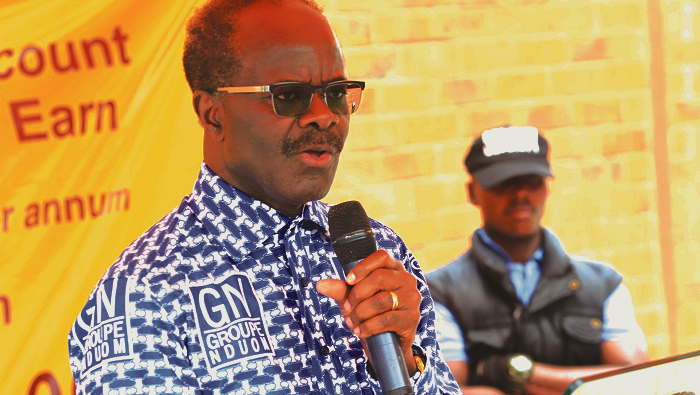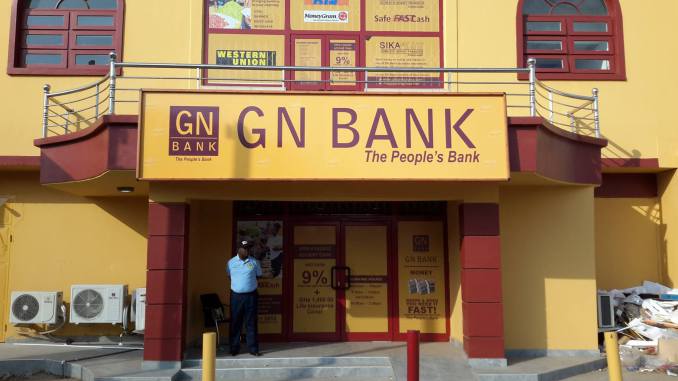
GN Bank conclude merger talks with Premium and Sahel Sahara banks
Three banks, GN Bank, Premium Bank and Sahel Sahara Bank, have concluded a merger deal that could be the first in a series of others to follow.
Advertisement
The deal is currently before the Bank of Ghana (BoG) pending the central bank's perusal and approval.

The transaction was led by Gold Coast Fund Management, a subsidiary of the Groupe Nduom, owned by business magnate and politician,
- Read also: GN Bank secures $20m for expansion
This follows months of back and forth movements on the need for local banks to consolidate, it appears the spell on mergers and
The move is to enable them to meet the Bank of Ghana’s (BoG’s) new minimum capital requirement of GH¢400 million by December this year.
While two of the banks, GN and Premium, are indigenous, Sahel Sahara is foreign-owned, with its headquarters in Libya.
It is expected that the deal, which is currently being reviewed by the central bank, is one of a few in the industry, ahead of the December 2018
According to a source, discussions on a merger among the three lenders started earlier this year but had virtually been concluded after all of them agreed in principle to the terms of a merger deal.
A highly placed source at the BoG confirmed to the GRAPHIC BUSINESS that the deal had since been submitted to the central bank for review and possible approval.
“The GN, Premium and Sahara deal is currently being reviewed by the BoG. We will communicate our assessment soon.
“The others are just speculations,” it said.
In reviewing the deal, it is expected that the BoG will be guided by its own merger and acquisition directive for banks,
First of many
When successful and approved, the consolidation of the three banks could be the first of a series of similar transactions in the banking sector, all aimed at meeting the central bank’s latest capital demand.
Beyond reducing the number of banks in the country from the current 34 to 32, the successful consummation of the deal could also create a bigger bank with a strong balance sheet and brand reach capable of competing with
An investment banker and Chief Executive Officer of C-
“The move is in the right direction, as 10
Casualty
News of the merger talks among the three banks comes at a time when a petition from local banks has been sent to the Presidency, requesting an extra four years to meet the BoG’s new capital demand.
Under the group name Association of Indigenous Universal Banks, the domestically owned banks argued that their respective financial situations made it impossible for them to
They insisted that mergers and acquisitions, although financial tools for meeting the central bank’s demand, were time-consuming and also promised to have grave repercussions on the economy and the financial sector in particular.
In a petition sent to President Nana Addo Dankwa Akufo-Addo in April this year, the association said: “Even if a merger is a possible solution, it is unlikely that a successful merger of two or three banks can be achieved within a relatively short period of one year, considering the due diligence activities that have to be undertaken before mergers are consummated.”
“Furthermore, the merger option could have very serious negative consequences on the economy,” the banks added, citing possible job losses and challenges with integration.
In their estimation, each merger could lead to “a loss of employment of between 500 and 1,000 people”.
Merge or die
Many experts, however, disagree with that position.
In an earlier interview, a former Board Chairman of Standard Chartered Bank,
“My position is very clear — let the local banks merge. Let them come together and build bigger banks. We have 34 banks in this country and about 34 million people, so every million people to one bank?” he asked.
“How many banks are in Nigeria? With 180 million people, they have just six banks. Does it make sense for us? It does not make sense to me,” he added.
Past deals
Since 2010, about six merger and acquisition deals have occurred in the banking sector, with the most recent one being the takeover of the HFC Bank by the Republic Bank of Trinidad and Tobago.
Before that, the following acquisitions had taken place: Bank of Africa and Amalgamated Bank, Ecobank Ghana and The Trust Bank (TTB), Access Bank and Intercontinental Bank, First Bank of Nigeria and International Commercial Bank, and Fortis and Merchant Bank which gave birth to today’s Universal Merchant Bank (UMB).





